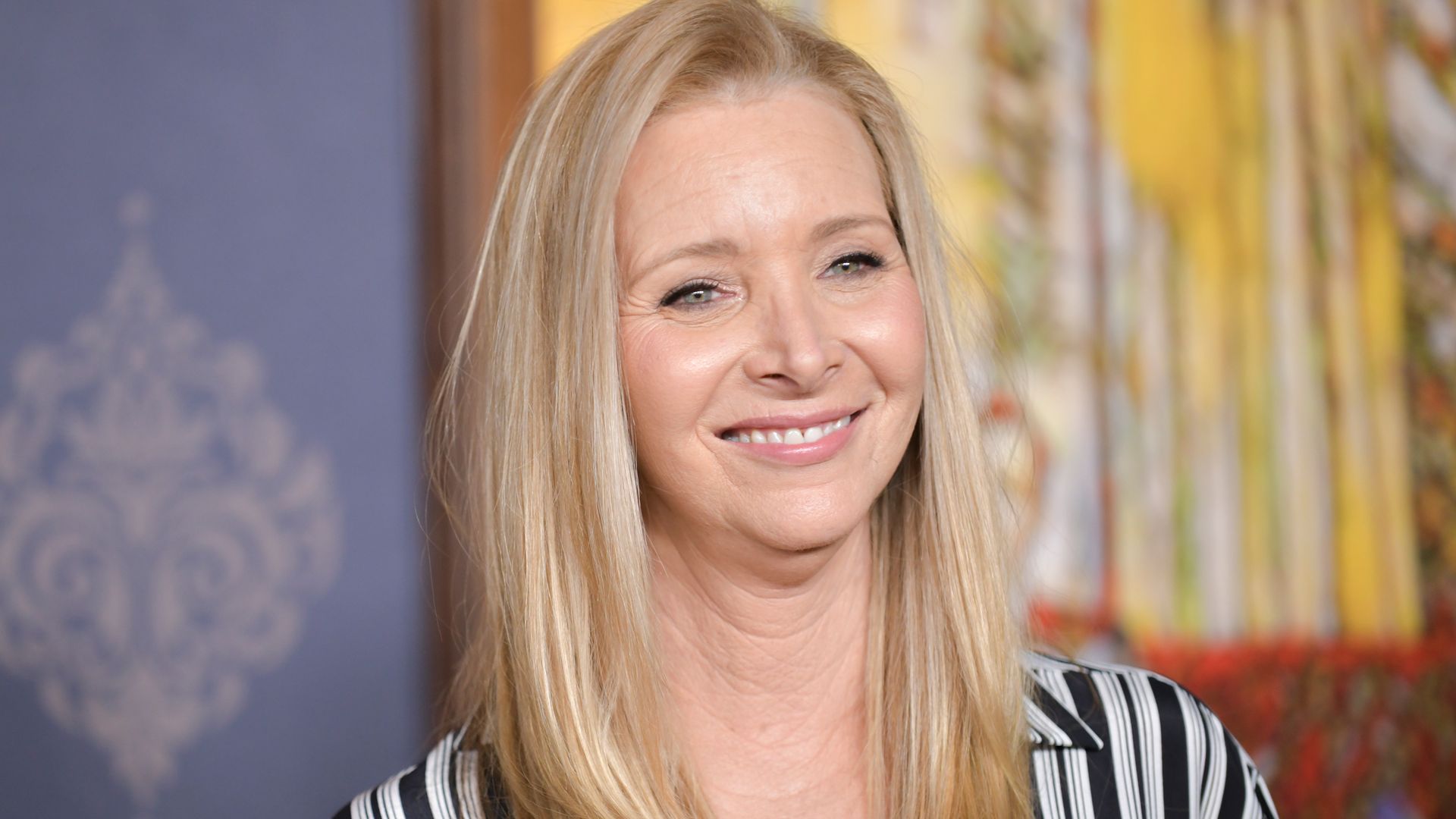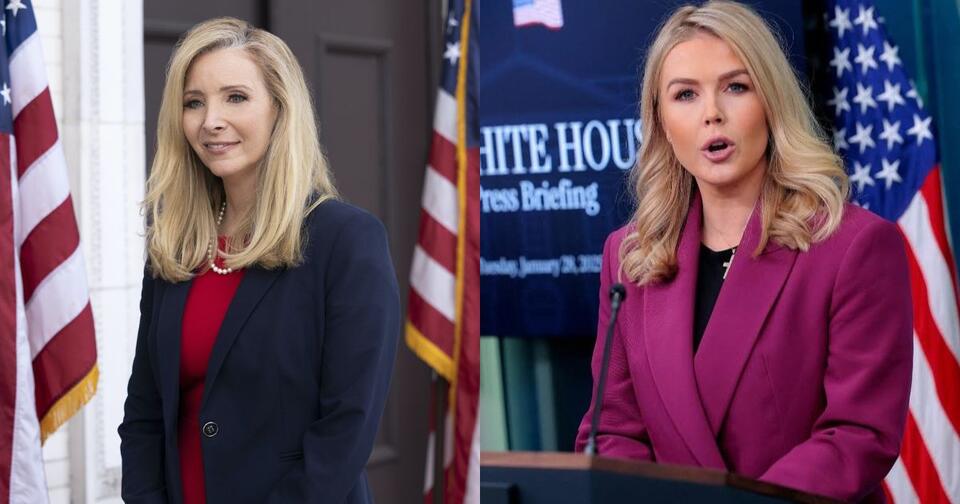Lisa Kudrow’s Viral Impersonation of Karoline Leavitt
The internet erupted into laughter and debate on August 25, 2025, as Lisa Kudrow, the beloved Friends star, unleashed a viral impersonation of White House Press Secretary Karoline Leavitt that has stolen the spotlight with stunning comedic flair. The skit, a masterful blend of satire and precision, has left fans roaring with amusement while casting a critical lens on Leavitt’s public persona. Kudrow’s performance, drawn from a resurfaced 2020 Netflix special Death to 2020, has ignited a whirlwind of reactions across social media, with viewers marveling at her talent and questioning the accuracy of the portrayal. What began as a nostalgic nod to her comedic roots has transformed into a cultural moment, raising eyebrows and sparking conversations about power, perception, and humor in the digital age.

Kudrow’s impression centers on a character named Jeanetta Grace Susan, a fictional MAGA spokesperson whose over-the-top denials and deflections mirror Leavitt’s real-life press briefings. In the skit, Kudrow delivers lines with deadpan perfection, dismissing evidence of Trump’s Ukraine dealings with gems like, “What transcript? Check your tape. I said no such thing,” before absurdly claiming, “There’s no such place as Ukraine.” The exaggerated tone, paired with her physical mimicry—long blonde hair, a vapid smile, and clipped delivery—has struck a chord with audiences. Social media platforms like X and TikTok are flooded with clips, amassing millions of views, as fans draw uncanny parallels to Leavitt’s 2025 performances, where she’s faced scrutiny for similar evasive tactics during daily briefings.
The timing of this viral resurgence is no accident. With Leavitt in the hot seat as press secretary, her public battles—deflecting questions on policy and defending controversial stances—have made her a prime target for satire. Kudrow’s impression, though filmed years before Leavitt’s rise, feels prophetic, capturing the essence of a press secretary navigating a polarized administration. Fans have praised the spot-on mimicry, with comments like “freaking awesome” and comparisons to Tina Fey’s Sarah Palin skit, hailing it as “the best thing since.” Others note the physical resemblance—down to the hairstyle—adding to the impression’s sting. The humor lies not just in the performance but in its reflection of a broader truth: the absurdity of political spin in real time.
Yet, the reaction isn’t unanimous. While many celebrate Kudrow’s genius, others argue the impersonation crosses a line, labeling it a “humiliation” that unfairly targets Leavitt. Supporters of the press secretary see it as a cheap shot, with some X users defending her as a young professional under pressure, not a caricature. The debate has split along ideological lines, with liberals applauding the satire as a mirror to MAGA rhetoric, and conservatives decrying it as an elitist attack. This polarization underscores a deeper tension: comedy’s role in holding power accountable versus its potential to amplify division. Kudrow, known for steering clear of overt political jabs, may not have intended such a firestorm, but her silence on the matter only fuels the frenzy.
The viral spread has amplified Kudrow’s comedic legacy beyond Friends, showcasing her range from Phoebe Buffay’s quirkiness to political parody. The Death to 2020 clip, written by Charlie Brooker, has found new life as viewers dissect its relevance to 2025’s political climate. Leavitt, who has yet to comment, faces a dilemma: ignore it and risk seeming rattled, or respond and risk further spotlighting the mockery. Her absence from the conversation has left the internet buzzing, with hashtags like #KudrowVsLeavitt trending, turning the impression into a cultural litmus test.
Beyond entertainment, the skit raises questions about Leavitt’s public image. Her briefings, often marked by curt dismissals and deflections, have drawn comparisons to Kudrow’s character, suggesting a persona that invites satire. Critics argue this reflects a broader issue: the administration’s reliance on combative rhetoric, which Kudrow exaggerates to hilarious effect. Whether this portrayal is fair or a distortion, it’s shifted the narrative, casting Leavitt as a figure both powerful and vulnerable. The establishment might dismiss it as comedy, but the public’s engagement—millions of views and counting—suggests a hunger for unfiltered takes on authority.
Kudrow’s performance also highlights the power of timing. Released in 2020, the skit predates Leavitt’s prominence, yet its resurgence aligns with her current role, amplifying its impact. This serendipity has turned a throwaway gag into a viral phenomenon, proving comedy’s ability to evolve with context. Fans see it as a prescient jab, while skeptics question if the resemblance is overstated, given Leavitt wasn’t in the spotlight then. The lack of concrete evidence linking the two beyond style and timing leaves room for interpretation, but the internet’s verdict leans toward Kudrow’s uncanny foresight.

As the buzz continues, the impression’s legacy is already taking shape. It’s a testament to Kudrow’s unmatched skills, blending humor with critique, and a reminder of satire’s dual edge—entertaining yet provocative. Leavitt’s silence might protect her image, but it also cedes the narrative to Kudrow’s viral triumph. For now, the spotlight remains on the Friends star, whose laughter-inducing takedown has not only entertained but also sparked a national conversation about power, persona, and the role of comedy in challenging the status quo.





